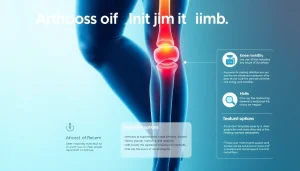Overview of the VDAP Program in Alabama
What is the VDAP Program in Alabama?
The VDAP Program in Alabama, or Voluntary Disciplinary Alternative Program, is a significant initiative designed to address issues related to substance use and mental health among nursing professionals in the state. Established by the Alabama Legislature, VDAP aims to foster a supportive environment for nurses who are struggling with these challenges, while also prioritizing public safety and the integrity of the nursing profession.
VDAP provides an alternative to disciplinary actions for nurses who voluntarily admit to substance use or mental health issues. This program allows for early intervention, individualized treatment, and facilitates the rehabilitation process, helping nurses return to their practice more effectively. By focusing on recovery rather than punishment, VDAP plays a dual role: it protects the wellbeing of the nursing community and ensures that patients continue to receive care from qualified professionals.
Eligibility and Enrollment Process
Eligibility for the VDAP Program is typically extended to registered nurses (RNs), licensed practical nurses (LPNs), and applicants for nursing licensure. To qualify, individuals must self-report their substance use or mental health issues to the Alabama Board of Nursing before any disciplinary action is taken against them. This initial step is crucial, as it demonstrates a commitment to recovery and professional responsibility.
The enrollment process begins with a formal application submitted to the Board. Participants are required to provide detailed documentation regarding their issues and previous treatment efforts, if applicable. Following this, the Board will conduct a thorough review of the application before granting entry into the program. This process may include interviews, assessments, and consultations with healthcare professionals to determine the best course of action for each individual.
Key Components of the Program
Several core elements define the VDAP Program and contribute to its comprehensive approach to nurse rehabilitation:
- Assessment and Evaluation: Upon enrollment, participants undergo thorough evaluations by qualified professionals to identify specific needs and develop personalized treatment plans.
- Monitoring: Participants are closely monitored throughout their recovery journey. This includes regular check-ins, drug screenings, and compliance with treatment protocols to ensure accountability.
- Support Services: Access to mental health counseling, peer support groups, and educational resources is crucial. The program emphasizes building a supportive network for nurses during their recovery.
- Re-entry Facilitation: VDAP works diligently to assist program graduates in reintegrating into the nursing workforce. This may involve refresher courses or transitional support to ensure a smooth return to practice.
Common Issues with the VDAP Program in Alabama
Financial Burdens on Participants
One of the most significant challenges facing participants in the VDAP Program is the financial burden associated with the required treatment and monitoring services. Nurses may find themselves facing considerable costs, often exceeding thousands of dollars for assessments, evaluations, and ongoing treatment programs. Such expenses can be particularly overwhelming for individuals already grappling with personal crises or reduced income due to leave from work.
Moreover, many rehabilitation facilities associated with the program tend to be for-profit entities, leading to elevated costs that are not uniformly covered by health insurance. This leaves nurses in difficult positions, facing not only the personal challenges of recovery but also the monetary strain of treatment. Finding affordable options within the context of the VDAP can often be a daunting task.
Accessibility and Availability of Services
Accessibility to necessary services is another concern. While the VDAP aims to provide comprehensive support, the realities of geographic limitations can hinder the ability of some nurses to participate fully. Rural areas, in particular, may lack adequate facilities that specialize in substance abuse recovery or mental health treatment, forcing participants to travel long distances or seek online alternatives that may not be as effective.
Additionally, waiting lists for treatment centers can extend long periods, delaying the initial phase of recovery and potentially exacerbating the issues at hand. This issue raises concerns about whether the resources are sufficient to meet the needs of all those who seek help through the program.
Stigma and Mental Health Concerns
Another critical barrier that nurses face when engaging with the VDAP Program is the stigma associated with substance use and mental health issues. Many individuals harbor fears about being judged by colleagues or losing respect in their professional communities if their struggles become known. The pervasive stigma can lead to reluctance to seek help, even when individuals desperately need it.
This concern about stigma often creates an internal conflict for nurses, who may feel torn between their professional responsibilities and personal struggles. Creating an open dialogue and fostering an environment that supports mental health within the nursing community is essential. It may also involve training programs to help peers understand the nature of substance use disorders and the importance of compassion in recovery efforts.
Legal Considerations for Nurses in the VDAP Program in Alabama
Nursing Licensure and Legal Implications
The implications of engaging with the VDAP Program extend into the legal realm as well. Nurses who voluntarily enter the program often wonder how it may impact their licensure and future employment prospects. While enrollment offers a path to treatment without immediate disciplinary action, it does not guarantee immunity from future effects on licensure reinstatement or monitoring requirements.
Understanding the specific legal ramifications of entering VDAP is crucial. Nurses may want to consult legal counsel specializing in nursing licensure issues to navigate this complex landscape. Legal professionals can provide valuable insights into the long-term implications of entering the program and help prepare for any potential challenges.
Rights of Nurses During the Program
Nurses participating in the VDAP Program retain specific rights that protect their interests. They must be informed about their rights, including the right to privacy concerning their participation in the program and the right to receive treatment that meets established standards of care.
Additionally, nurses should understand that, while they may be under monitoring, they also have the right to seek legal representation to advocate for their needs and interests throughout the process. Being aware of these rights empowers nurses to navigate the complexities of the program with greater confidence.
Legal Support Options Available
Navigating the nuances of the VDAP Program can be challenging, underscoring the importance of seeking legal support when needed. Various resources are available, including attorney consultations, which specialize in healthcare and nursing license law. These legal experts can provide guidance on the intricacies of the program, potential consequences of participation, and pathways to ensure a successful recovery while maintaining licensure.
In addition to private legal support, professional nursing organizations may offer resources and access to legal assistance for their members, helping to fortify existing networks of support. Accessing these resources can enhance the understanding of one’s rights and options within the framework of the VDAP.
Success Stories and Positive Outcomes from the VDAP Program in Alabama
Personal Testimonials from Program Graduates
Many individuals who have successfully completed the VDAP Program have shared their stories of recovery, highlighting the program’s potential to facilitate meaningful changes in their lives. Testimonials often reflect a deep appreciation for the second chance provided by the program, emphasizing the transformative power of rehabilitation.
Former participants frequently describe how the emotional support, counseling, and monitoring helped them overcome their challenges. They attribute their successful integration back into the nursing workforce to the program’s tailored approach, which allows for individual strengths and needs to be taken into account.
Long-term Career Potential Post-VDAP
Beyond individual success stories, statistics indicate that many program graduates experience revitalized career trajectories following completion of the VDAP. Primarily, participants have reported improved job performance, higher job satisfaction, and renewed commitment to their profession.
Many nurses who have successfully navigated the program also find themselves advocating for mental health awareness within their workplaces. This not only benefits their career progression but also fosters a more supportive environment for future colleagues facing similar challenges.
Contributions to Community Health
Graduates of the VDAP Program often extend their recovery journey into broader community health initiatives. Many find purpose in contributing to advocacy efforts aimed at de-stigmatizing substance use and mental health issues among healthcare professionals. By sharing their experiences, they help educate others and promote support networks that benefit the entire community.
As nurses reintegrate into practice, their empathy and understanding of recovery can enhance the quality of care they provide. This ripple effect can lead to a healthcare environment that emphasizes support and wellness, thereby not only aiding individual recovery but also contributing positively to community health overall.
How to Navigate the VDAP Program in Alabama
Guidelines for Effective Participation
Successfully navigating the VDAP Program necessitates a proactive approach. Here are several best practices for effective participation:
- Be Honest: Full transparency in reporting issues and adhering to guidelines foster trust and facilitate better outcomes.
- Engage with Support Services: Actively participate in offered support groups and counseling sessions to maximize the therapeutic benefits of the program.
- Communicate Regularly: Maintain open lines of communication with program coordinators and therapists to ensure challenges or concerns are addressed promptly.
- Plan for Aftercare: Prepare for continued support or treatment even after completing the initial program. Establishing a long-term recovery plan is vital for maintaining stability.
Resources and Support Networks
Several resources exist to support nurses within the VDAP Program. Professional nursing organizations may offer educational materials, peer mentorship, and access to legal assistance. Additionally, building networks with other participants can provide invaluable morale support and shared experiences throughout the recovery journey.
Support groups, both local and online, can also be instrumental for nurses in recovery, allowing for ongoing discussions and sharing of strategies for overcoming barriers. These communal resources can enhance resilience among participants.
Future Directions for the Program
As the healthcare landscape continues to evolve, so too may the VDAP Program. Ongoing evaluation and feedback from participants can guide enhancements to the program’s structure and offerings. Gathering input on common challenges faced by nurses allows for the development of more adaptive support systems and resources.
Future iterations of VDAP could potentially incorporate innovations in telehealth, allowing for more accessible support and monitoring options, particularly for participants in rural areas. By staying at the forefront of healthcare trends and best practices, the program can ensure its effectiveness in fostering recovery and promoting public safety.








